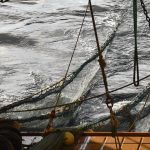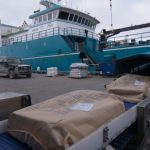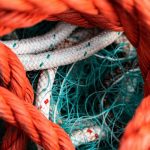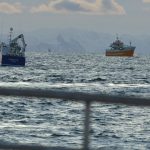Damanaki is also managing fleets and conserving resources under the future Common Fisheries Policy. She started out with fleet management saying that it is urgent to bring down the massive overcapacity in the EU fleet. But there should be a look out at what happens to the patron pecheur, to the fishermen who owns his vessel and who has been struggling in the past few years to make a living from fishing.
She informed that it is not the intention of the Commission to propose decommissioning of vessels with taxpayers’ money in the future. And with no tradable rights in place you run a serious risk of seeing many fishermen devoid of any economic assets, if they decide to leave this activity behind. She believes that all Member States should consider tradable rights, at least for their large-scale fleets.
Damanaki said that there is a need to promote small scale vessels with affirmative action. This can be a better access to the future fisheries fund, a better access to resources or fishing areas or also a higher share in tradable rights. Resource conservation is another issue that Damanaki addressed with elan. She said that EU fish stocks have two vital roles: they are important for the ecosystem of our oceans, but they are also the basis for the economic activity of our fishing industry, and here she is talking about the whole industry, starting from the catching sector to the auctions, processors, net manufacturers, traders and so on.
She stressed that pelagic fisheries are mostly clean fisheries with little or no bycatch and will probably be managed best with TACs and quotas. In mixed fisheries, where a few species are fished together TACs and quotas lead to discards. Finally, she said that we can also explore the possibility of leaving the choice between these two instruments, TACs and quotas on the one hand or effort on the other hand, to a regionalised decision-making process.








